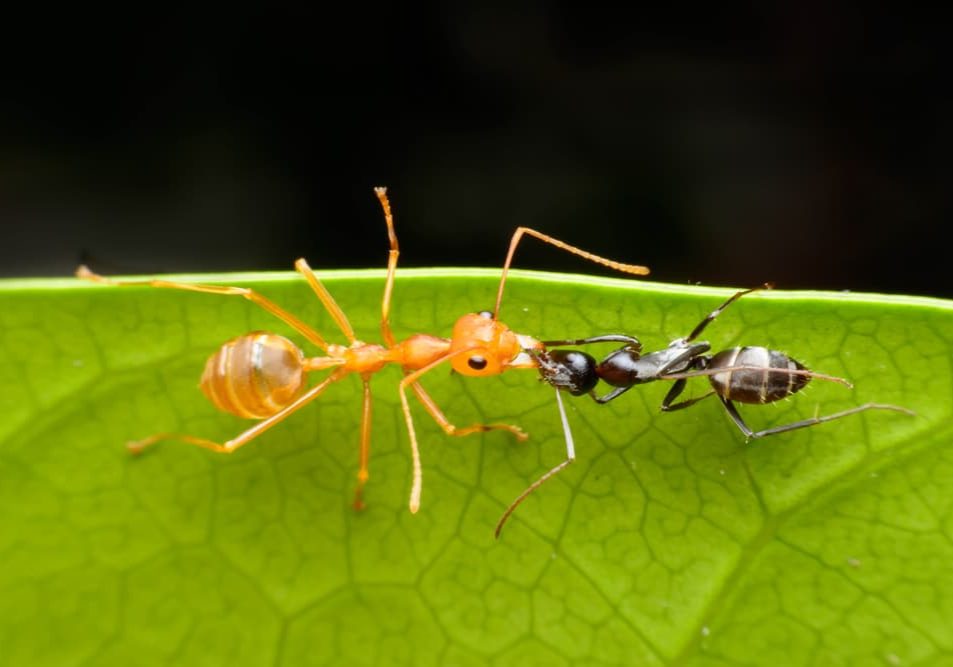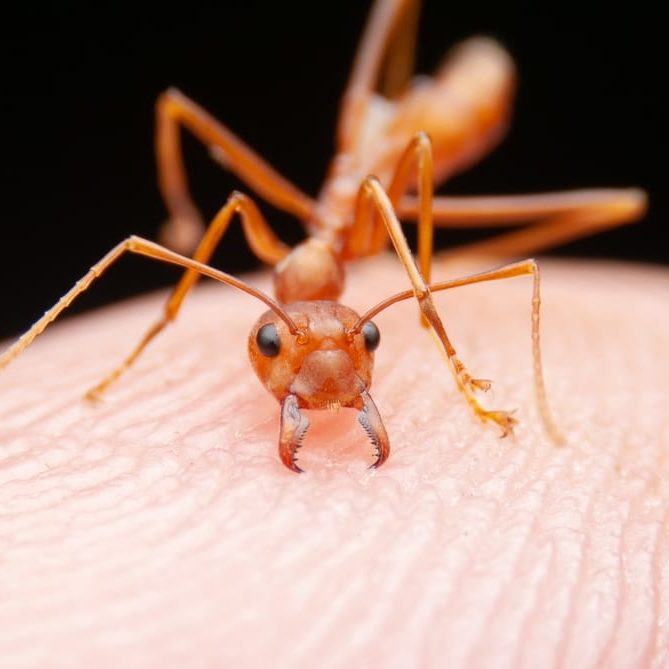When and Why They Choose to Attack
It's clear that ants attack mainly when they feel threatened, but their decision to engage or retreat depends heavily on the context and potential risk to their colony.
Again, ants are inherently protective of their colony. If a predator – say, a human or larger animal – gets too close to their home, they won’t hesitate to launch a defensive attack. This is their instinctive way of safeguarding their queen and their home.
However, the scenario changes when ants are away from their colony. Encountering a predator in this situation often leads to a different response. Instead of attacking, they're more likely to flee. This might seem counterintuitive, but it makes perfect sense from the ants' perspective.
Their primary objective is the protection of their colony, not individual heroics. Engaging with a predator far from the nest, where the risk to the colony isn’t direct, is likely an unnecessary and risky move.
Ants often weigh the risks before deciding to attack. If their colony isn’t in immediate danger, they prefer evasion over confrontation. This strategic approach to defense plays a crucial role in their survival and the preservation of their colony.
Which Ants Are Most Likely to Attack
Understanding which ant species are more likely to attack humans is a vital part of ant attack prevention. Ants, much like humans, have varying degrees of aggression. Recognizing the more aggressive species can help you take the necessary precautions to protect yourself.
All ant species have mandibles, meaning technically, any ant can bite.
However, most species resort to biting only when they have no other choice. It's their last line of defense. But there are exceptions, like fire ants, known for their aggressive nature. Even the slightest disturbance can trigger an attack from these fiery little creatures.

In contrast, the ants you commonly find in your home, such as carpenter ants or Argentine ants, pose more of a risk to your home's structural integrity than to you personally. These species are less likely to attack humans unless directly provoked or threatened.
So, while almost all ants can bite, the likelihood of an attack largely depends on the species and the situation. Understanding this can help you assess the risk level and act accordingly to prevent unwanted encounters with these tiny yet potentially formidable insects.
Do Ants Attack Each Other?
It's natural to wonder if ants, known for their attacks on humans, also battle each other. The answer is yes: ants do attack other ants, and they do so under a variety of circumstances, often mirroring the reasons they attack humans.
Similar to their protective behavior towards humans, ants are fiercely territorial. When an ant from one species encroaches upon another species' territory, it almost inevitably leads to conflict.
These skirmishes are about safeguarding their colony and its surroundings from perceived threats.
At Emtec Pest Control, we are committed to safe and responsible pest control. We understand that your family’s safety is your number one priority, so we make it our priority, too.
If you have any other questions about any of these pests or pest control for your home or business, contact your Oklahoma pest control experts at Emtec Pest Control by calling us or by filling out our online contact form.

